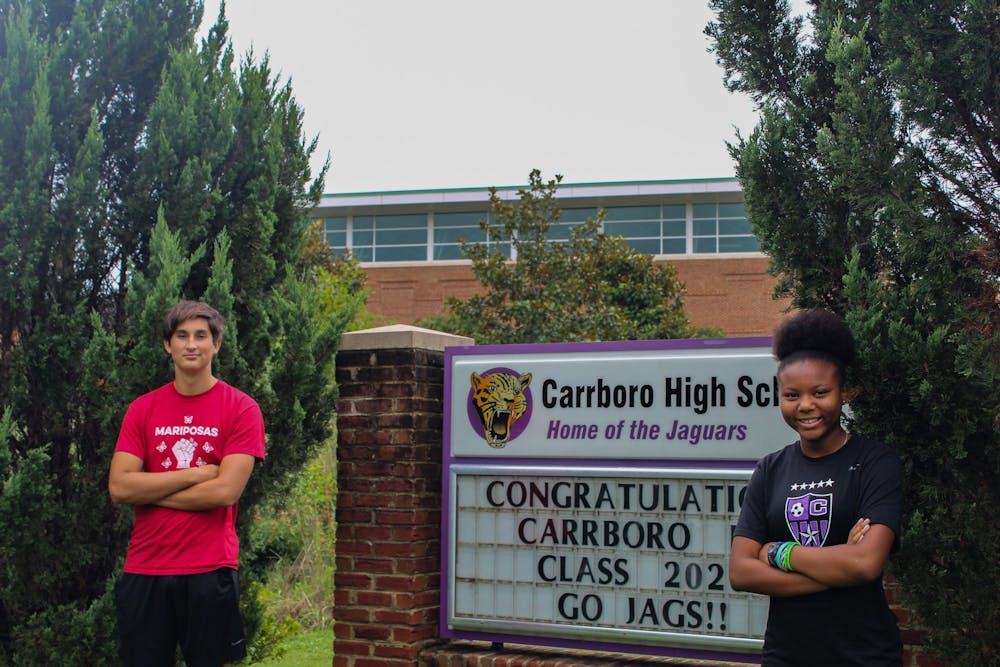Following the civil rights uprisings of summer 2020, students at Carrboro High School formed the Black and Brown Student Coalition. The Daily Tar Heel talked with two members of BBSC, Julian Taylor and Phoenix Tudryn, about what the coalition is doing now and their most recent podcast series for Black History Month, where students answered questions about Black Lives Matter.
This interview has been edited for brevity and clarity.
The Daily Tar Heel: What has the impact been like since you distributed the first podcast?
Julian Taylor: I could definitely tell that after our first podcast at the beginning of the year, teachers became more lenient in grading. Not in a bad way, but in a way that gives students who have other responsibilities more time to get their work in, which is important. We did discuss quotes from the podcast in advisory, and I can say firsthand that in my advisory, we had in-depth discussions that had never really been had before. Within the past week, our podcasts have been incorporated into the UNC School of Education curriculum for a couple of professors, so that’s been nice.
DTH: Can you tell me more about the most recent podcast that you did?
JT: I think we had about 10 to 15 students from around Chapel Hill and Durham and some from Raleigh. A couple of the questions are more broad about how they feel about the Black Lives Matter movement. The rest of them are directed for teachers and educators, asking how their teachers can better support them in a school setting.
Phoenix Tudryn: There’s a couple of questions that talked about addressing systemic racism in school settings. It’s something that can apply outside the classroom as well, because I know it’s something as a community that we’ve been struggling with. How do we address systemic racism and actually have conversations about it? That’s something the podcast could be used for — to inform those conversations and to help those move about in the community and the classroom.
DTH: What is it like for both of you to be student leaders?
JT: It’s definitely difficult to be a leader in a virtual world, but I think a lot of times, students don’t need to come to us. I think our only advice is that you should just go do it.



